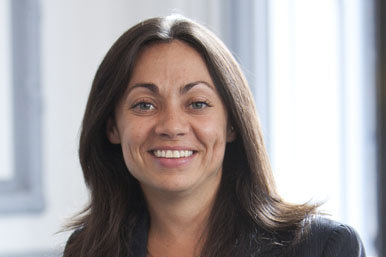In the wake of the Human Rights Campaign’s first Municipal Equality Index, numerous cities, most notably Philadelphia, have been praised as “gay-friendly,” while others have been exposed as particularly unaccommodating or discriminatory towards the LGBT community. While Philadelphia scored the second-highest out of all cities, New Hope and Harrisburg received alarmingly low scores — a 48 and a 76, respectively, out of a possible 100 base score and 20 potential bonus points.
Having written several articles analyzing the criteria of the MEI and how Pennsylvania municipalities were scored, I have become an “accidental expert” on this topic. Recently, I was asked by Dan Miller, a gay mayoral candidate in Harrisburg, and the New Hope Borough Council to help assess their scores and provide recommendations for improvement.
By way of background, the MEI is an index designed to measure how supportive 137 U.S. cities’ policies are towards the LGBT community. Evaluations are based on 47 criteria within six major categories: nondiscrimination laws, relationship recognition, municipality as employer, municipal services and programs, municipality as law enforcement and municipality’s relationship with LGBT individuals. The index is designed to assess the tangible rights and services offered to gay citizens, as well as the city’s overall relationship with the LGBT community.
New Hope and Harrisburg lost points in many of the same categories. Neither has a mayoral LGBT liaison or office of LGBT affairs, nor do they have enumerated antibullying policies in their schools. The MEI also grants points to cities that have a similar liaison within the local police department, in order to ensure that hate crimes are regularly reported to the police, and that those reports are then relayed to the Federal Bureau of Investigation annually. Neither city had established a section of their police departments to meet these needs prior to the 2012 MEI.
As a result, I drafted a memorandum clarifying where they lost points and how they can avoid doing so in the future.
Since the Borough Council of New Hope reviewed the memorandum, it has already taken steps to create a more equal community. New Hope has implemented domestic-partner benefits for LGBT employees and created a protocol for reporting hate crimes to the FBI. And, in the last month, the borough began developing antibullying policies for its school system.
In addition to Harrisburg’s Miller, New Hope will also have Donna Deely as an out mayoral candidate. This will not earn either municipality points on the next MEI, but having out politicians will help each city develop an overall environment that is more accepting of and attentive to the needs of its LGBT citizens. Pennsylvania has yet to have an openly gay mayor and 2013 could see the election of two.
It may seem as though smaller municipalities may be subject to a scoring bias that does not weigh in their favor, which would make it inherently easier for Harrisburg and Philadelphia to outperform boroughs like New Hope. New Hope, with a population of approximately 2,500, is held to the same standards of cities like Philadelphia and New York. At first glance, it appears that New Hope would be expected to offer the same accommodations to the LGBT community as its larger counterparts, but without the same available resources. However, Cathryn Oakley, an HRC employee and one of the writers of the MEI, says HRC took specific measures to avoid this bias, ensuring there were several avenues for smaller municipalities to earn the same amount of points. The MEI allows for points to be granted for the actions taken by smaller entities, as long as the actions are proportional to their resources.
In 2012, 11 cities earned scores of 100 or higher. This, however, does not mean that these cities don’t have to room to improve. In order to keep cities nationwide striving for higher ratings and to promote the ceaseless drive for equality, the HRC will raise its requirements for a perfect score.
The willingness of Harrisburg and New Hope to make the necessary changes to improve their MEI is promising, especially in Pennsylvania. Their attention and consideration for not only promoting LGBT equality, but doing so as quickly as possible, is indicative that their intentions are authentic. Though cities should continue to look for ways to improve their MEI scores, the most important element necessary for developing a fair and just society is an ongoing emphasis on human rights and equality.
Angela Giampolo, principal of Giampolo Law Group, maintains offices in Pennsylvania and New Jersey and specializes in LGBT law, business law, real-estate law and civil rights. Her website is www.giampololaw.com and she maintains two blogs,www.phillygaylawyer.com and www.lifeinhouse.com. Send Angela your legal questions at [email protected].
